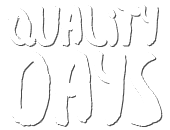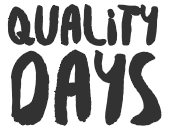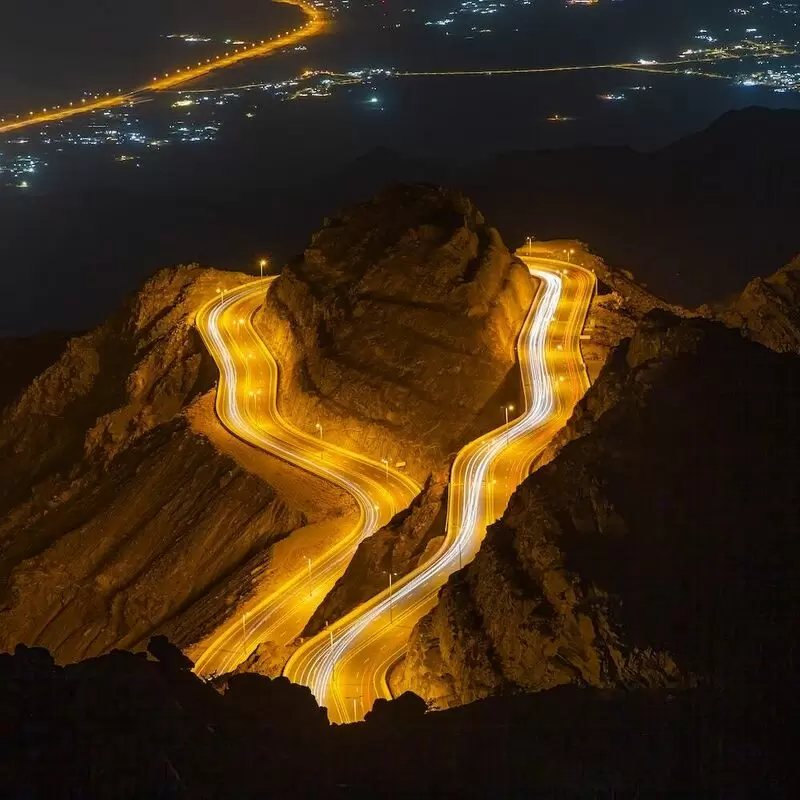
1. Fakieh Aquarium
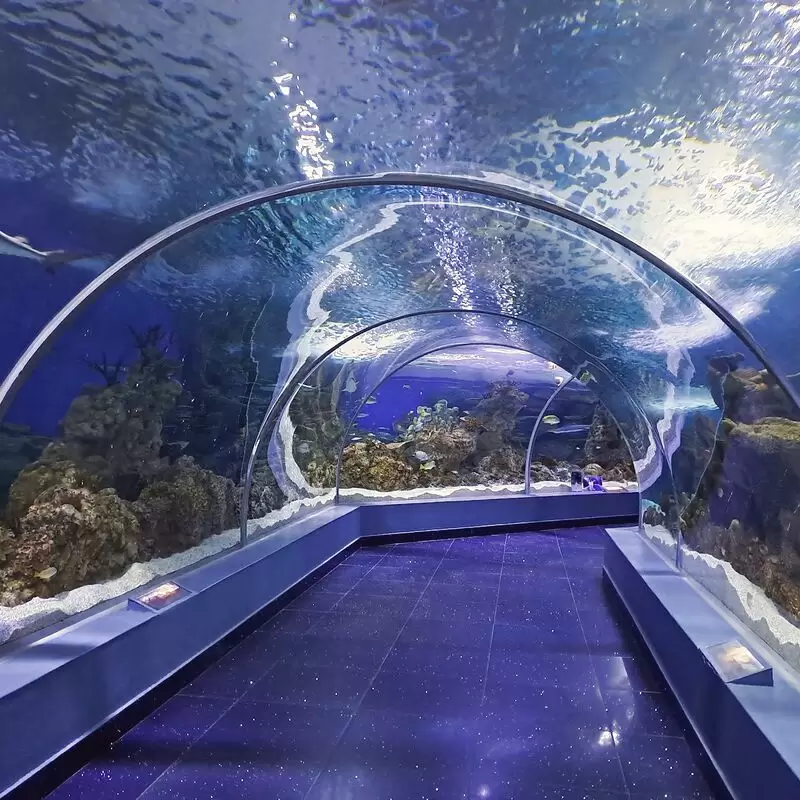
Next to, Al Kuranaysh Rd، Al Kurnaysh Br Rd, Al Nawras، Jeddah
2. Al Rahmah Mosque
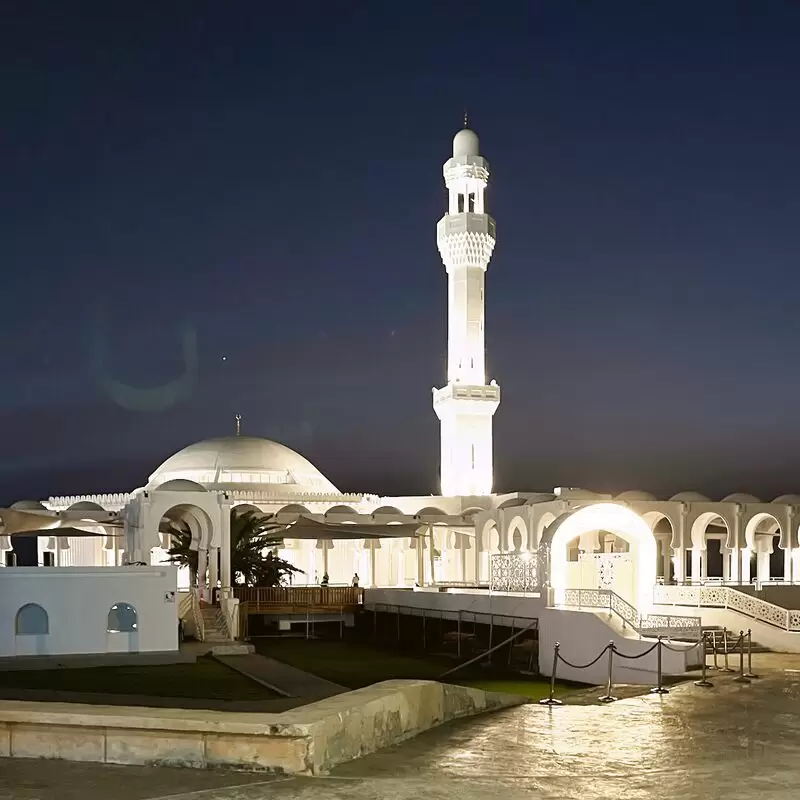
طريق الكورنيش، حي الشاطئ،، J4X2+C9C, Ash Shati, Jeddah
3. King Fahad's Fountain
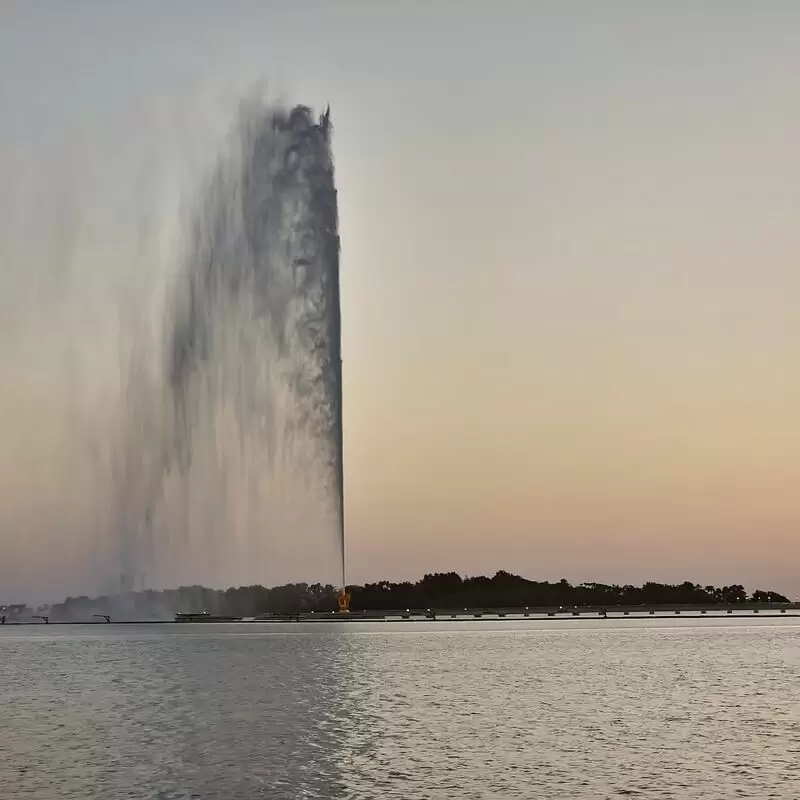
G48W+727 Meeza International Tourism Services Co. Ltd، Al Andalus, Jeddah
Saturday - Sunday: Closed
4. Al Shallal Recreational Park
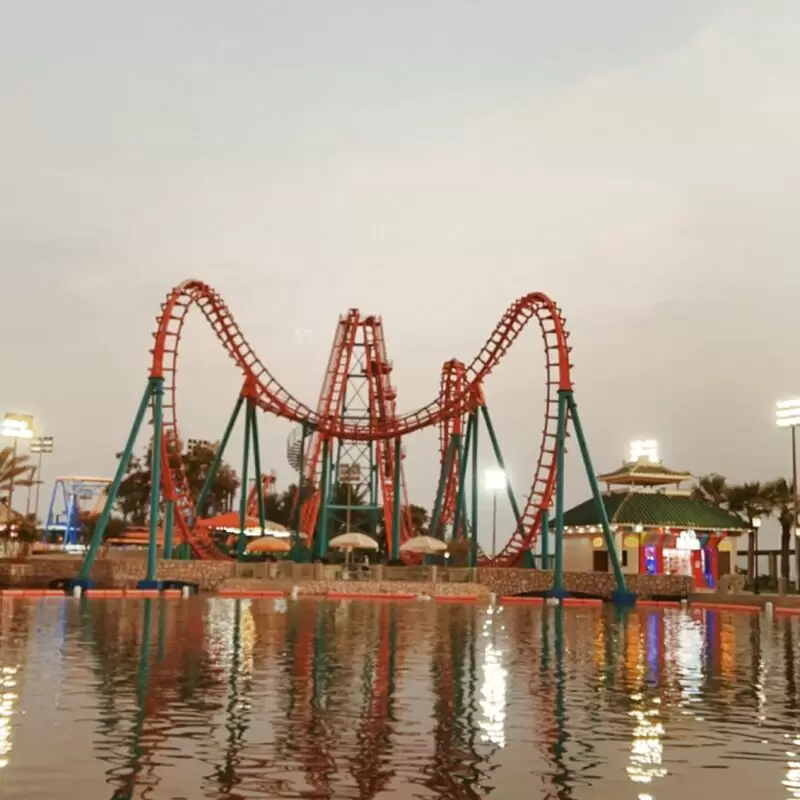
Al Kurnaysh Br Rd, Ash Shati, Jeddah
Thursday - Friday: 4:30 PM – 1:30 AM
5. Hassan Enany Mosque
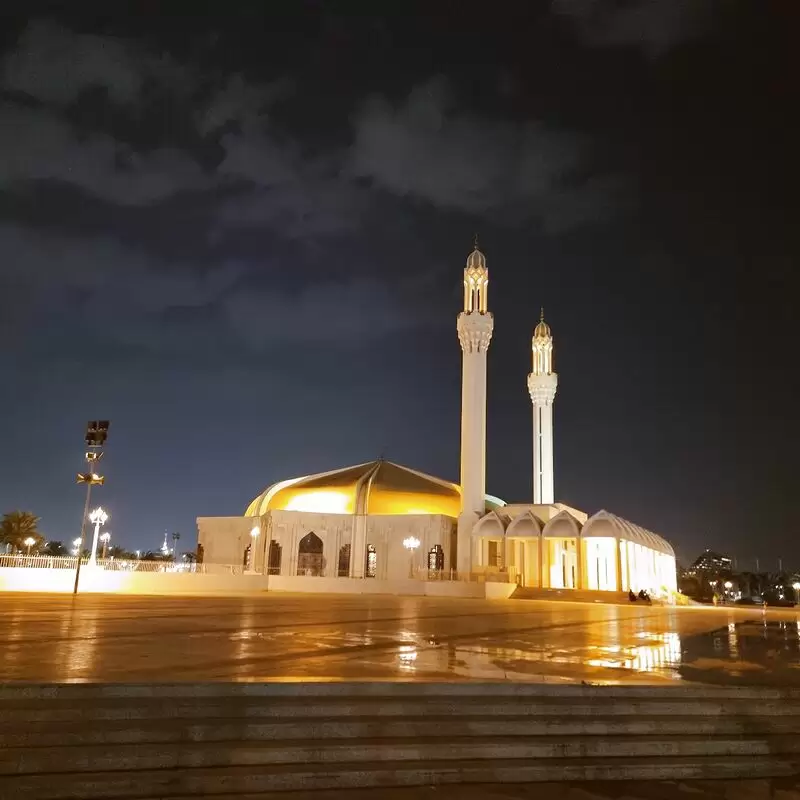
7412 حي 2838 طريق الكورنيش الحمراء 23321، 2838, Al-Hamra'a, Jeddah
6. City Walk Jeddah
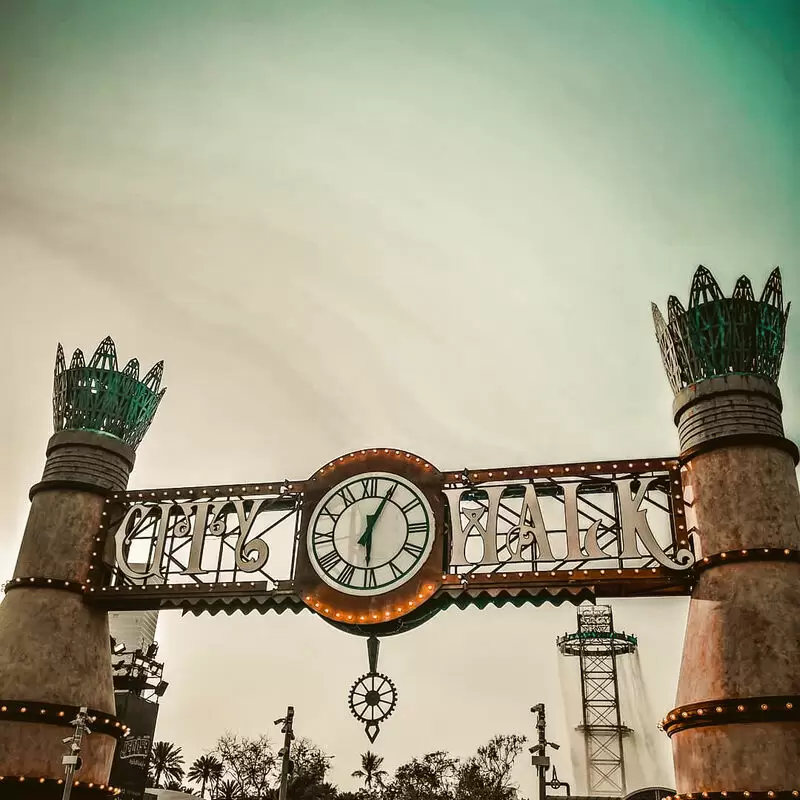
Ash Shati, Jeddah
7. Old Jeddah Al Balad
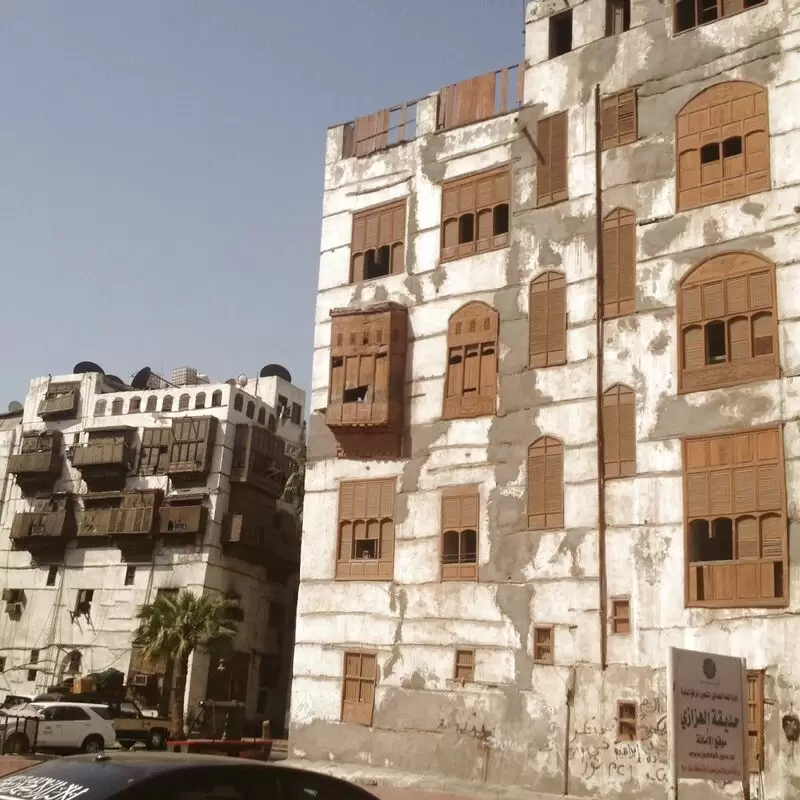
3022-3107 Bazan Ln, Al-Balad, Jeddah
8. Jeddah Old Gate
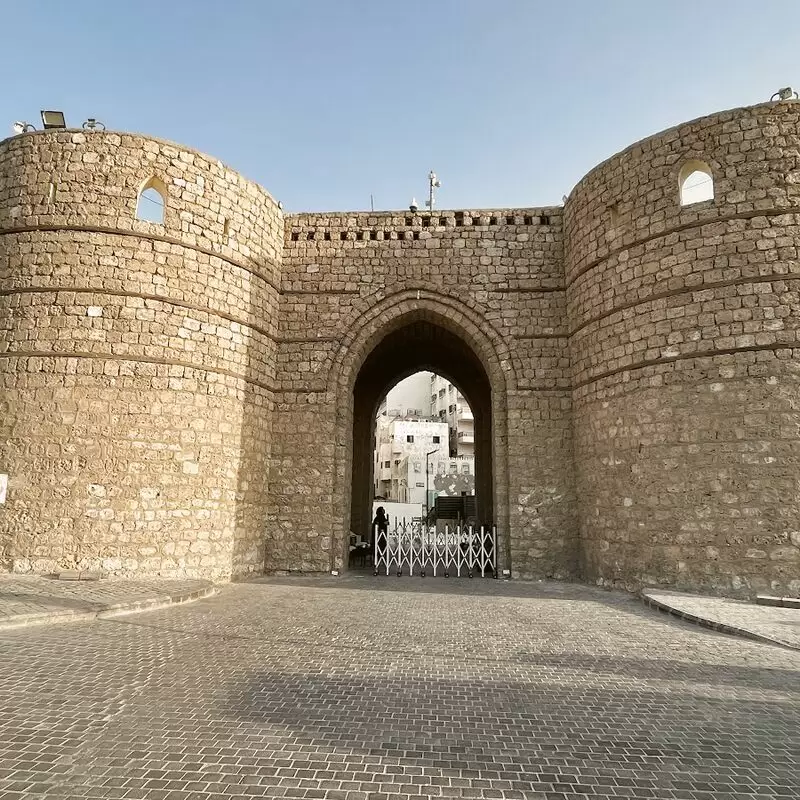
F5QP+MGM, Abu Inabah, Al-Balad, Jeddah
9. Jeddah Sign
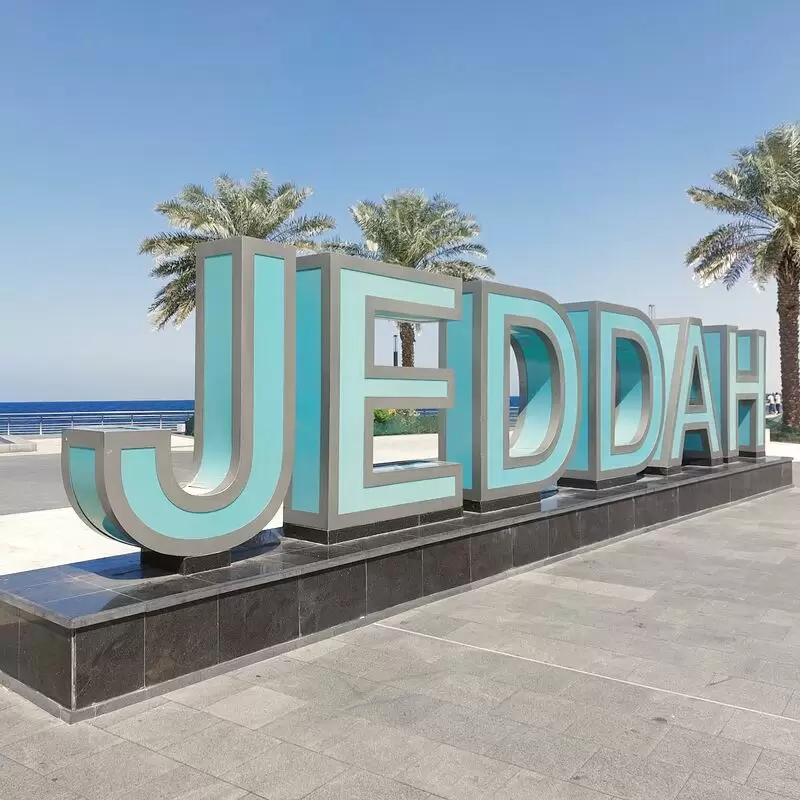
H4V4+28R، الشاطئ،، Jeddah
10. Nassif House Museum
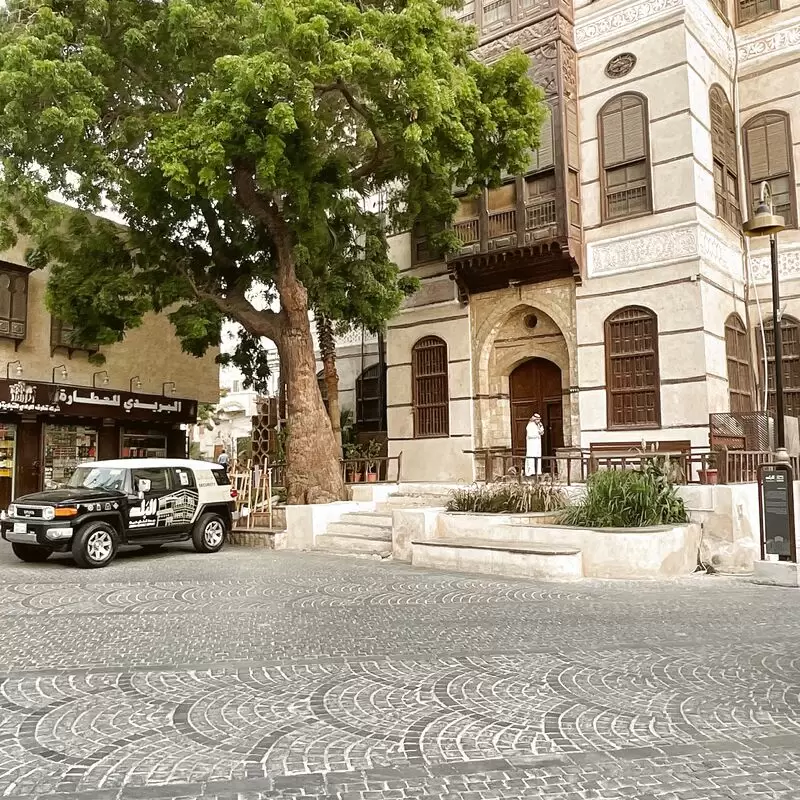
F5MQ+J2Q, Al Dhahab, Al-Balad, Jeddah
Sunday: 8:00 AM – 12:00 PM, 6:00 PM – 12:00 AM
11. Prince Majid Park
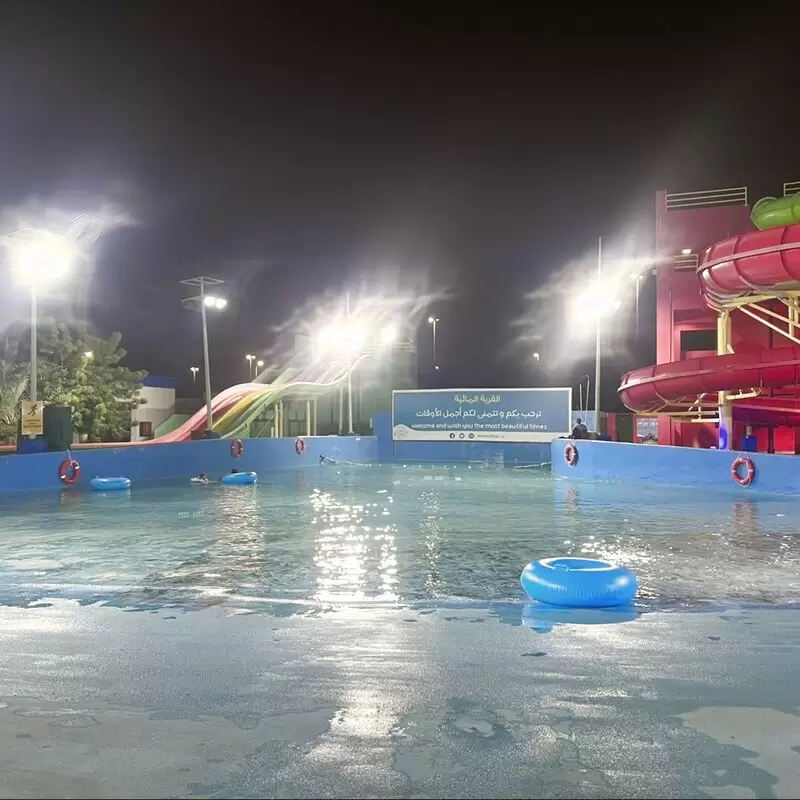
المكرونة فرعي، الربوة،، Ar Rabwah, Jeddah
Friday: 4:00 PM – 2:00 AM
12. Jeddah Waterfront Harbor
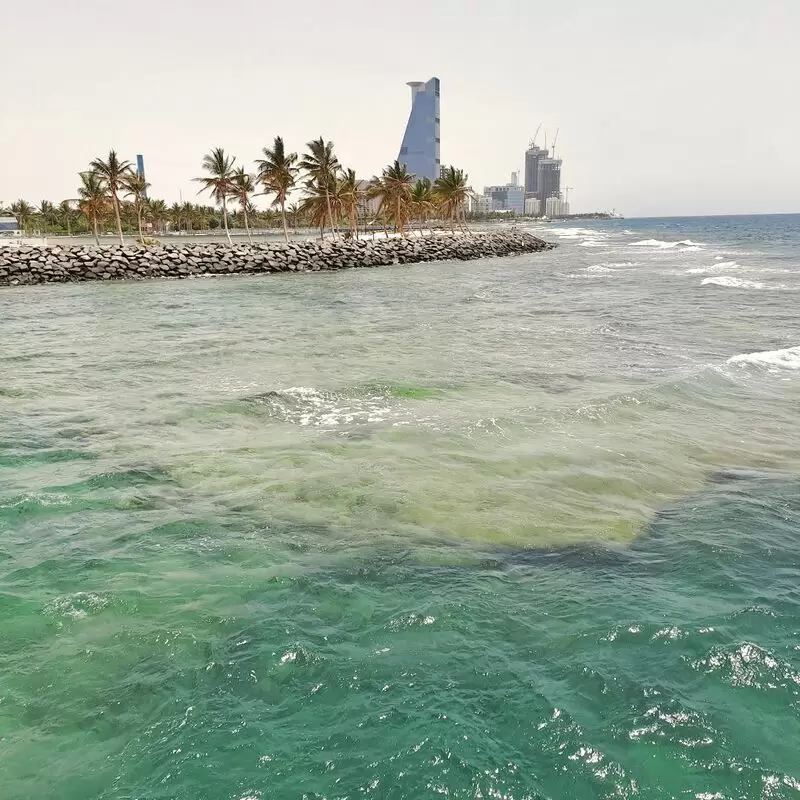
Jeddah
13. Atallah Happy Land Park
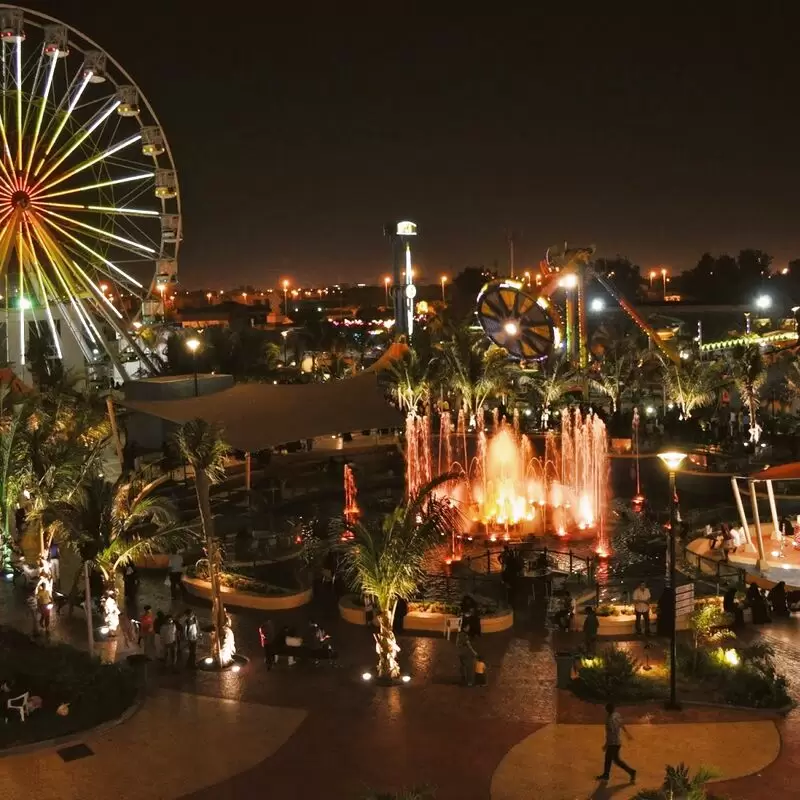
طريق الكورنيش، الشاطئ، 23611، Ash Shati, Jeddah
14. Jeddah Promenade
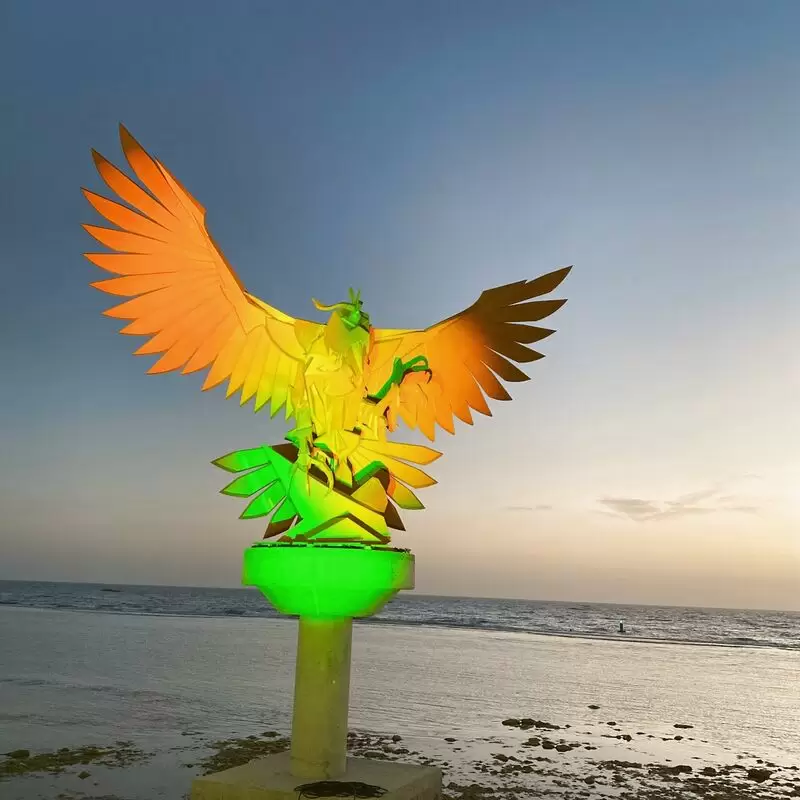
8625 2212 طريق الكورنيش،، Ash Shati, Jeddah
15. Historic District
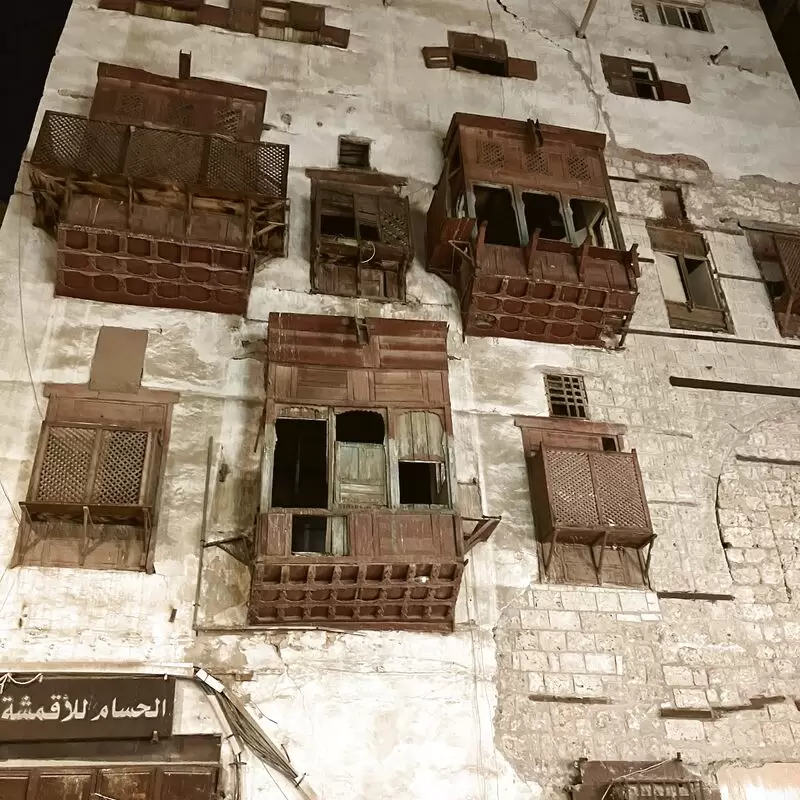
Unnamed Road, F5PQ+734، البلد، Jeddah
16. View tower
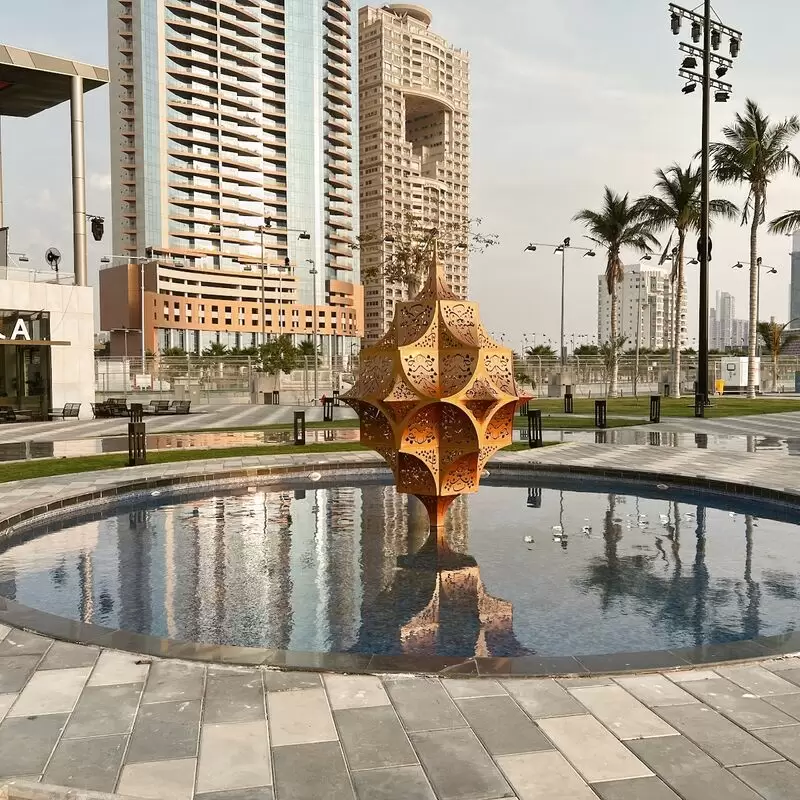
J4W2+VW2, Ash Shati, Jeddah
17. The Golden Eagle Statue
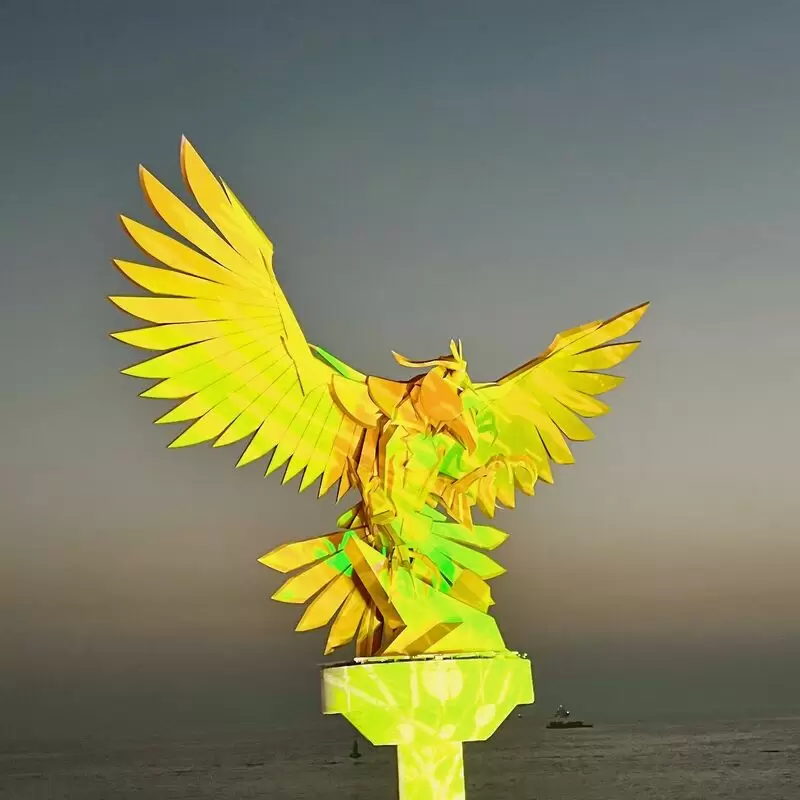
6826 طريق الكورنيش، حي الشاطئ، جدة 23613 2420،،, الشاطئ، Jeddah
18. Jeddah port lighthouse
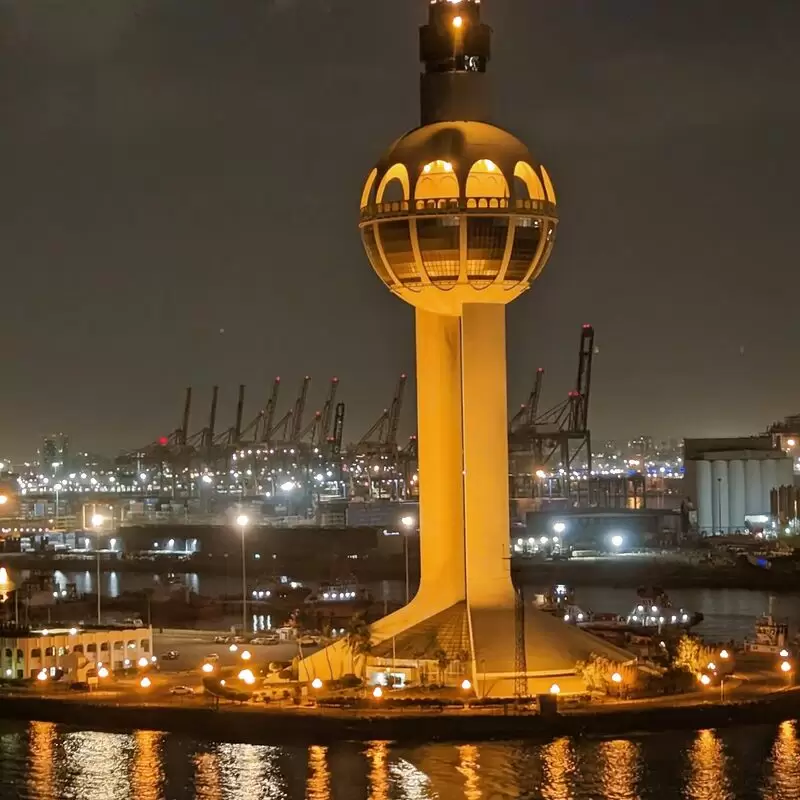
F49X+CW7، ميناء جدة الإسلامي،، Jeddah Islamic Seaport, Jeddah
Tuesday: 7:00 AM – 10:30 PM
Wednesday: 7:00 AM – 8:00 PM
Thursday: 7:30 AM – 8:00 PM
Friday: Closed
Saturday - Sunday: 7:00 AM – 11:00 PM
Best Time to Visit Jeddah
Annual Weather in Jeddah
Questions & Answers
What is the local language spoken in Jeddah?
The language spoken in Jeddah, Saudi Arabia, is Arabic. It is predominantly the Saudi dialect, which differs slightly from the modern standard Arabic taught in schools and used in formal communication. The Saudi dialect exhibits regional variations and may also have variations within itself. However, due to the growing number of foreigners in the city and the influence of tourism and international trade, English is also commonly spoken.
Are there any local customs or etiquettes I should be aware of?
In Jeddah, it is important to respect local customs and Islamic traditions. Modest dress is essential; women should wear loose clothing and a headscarf, while men should avoid shorts. Public displays of affection are not appropriate. During Ramadan, do not eat, drink or smoke in public, as Muslims must fast during this time. The weekend is on Friday and Saturday. Women must have a male family member accompany them when going out. Always greet with your right hand; the left is considered unclean.
What is the local cuisine like in Jeddah?
Jeddah's local cuisine embodies a delicious blend of Middle Eastern and Asian influences. It is known for its rich flavors, with popular dishes such as Kabsa, a spiced mixed rice dish with meat, and Ruz Bukhari, a savory rice dish with aromatic spices. Due to Jeddah's coastal location, seafood is also popular. Traditional dishes include samboosa and falafel. Lovers of sweets enjoy dishes such as kunafeh, a cheese pastry soaked in sweet syrup. Tea and Arabic coffee are typical drinks that round out the dining experience.
Is it safe to travel around Jeddah at night?
Yes, Jeddah is generally considered a safe destination to travel at night. As in any major city, it is important to take the usual precautions. Public areas are well lit and often patrolled by police. However, it is advisable to avoid quiet or secluded areas late at night and always be aware of your surroundings. The city offers a vibrant nightlife with many cafes, restaurants and stores open late, making Jeddah a pleasant city to explore after sunset.
What is the traditional dress of Jeddah?
The traditional dress of men in Jeddah, Saudi Arabia, is the thobe, also called the dishdasha, a long white robe. They often wear a head covering called a ghutra, which is usually white or red and white checkered. Women traditionally wear an abaya, a long robe sometimes decorated with embroidery. This black robe often covers the entire body and is combined with a headscarf, the hijab or niqab, which covers the face except for the eyes.
What public transportation options are available in Jeddah?
The main means of public transport in Jeddah include cabs and ride-sharing services such as Uber and Careem. The city also offers buses, but these are not frequently used by tourists due to language barriers and low frequency. Jeddah is also investing in the development of a metro and light rail system to ease traffic congestion and provide additional transportation options. You can rent a car, but traffic can be heavy and local driving habits might be different from what you are used to.
Is there a specific dress code for tourists in Jeddah?
Yes, Jeddah in Saudi Arabia follows a conservative dress code, especially for women. Women must wear an abaya (a loose-fitting black cloak) in public. The abaya is traditionally worn over clothing, but it is acceptable for foreigners to wear it over Western-style clothing. Although covering the head is not obligatory for non-Muslims, it is advisable to have a headscarf ready. Men should avoid wearing shorts and sleeveless shirts in public to respect local customs and traditions.
How easy is it to communicate in English in Jeddah?
There are a large number of people in Jeddah who can communicate in English, especially in areas frequented by tourists such as hotels, restaurants, and shopping malls. English is often taught in schools and used in businesses, so younger locals and professionals generally have a good command of the language. However, some older residents or those from more traditional backgrounds may not have as good a command of the language. Taking a translation app with you could be helpful in these cases.
Are there any safety measures for female travelers in Jeddah?
In Jeddah, Saudi Arabia, women are expected to follow local customs and dress codes. This means they must cover their bodies and hair in public, wear an abaya (a loose-fitting black coat) and a hijab or headscarf. There are usually no special safety concerns for women. However, it is recommended that you do not travel alone at night and always be aware of your surroundings. The city is generally safe, but it is always advisable to respect local traditions to ensure a trouble-free visit.
What are the main types of street food in Jeddah?
Jeddah, Saudi Arabia, is a kaleidoscope of flavors, offering delicious street foods such as shawarma, a Middle Eastern protein specialty rolled in pita bread, and mutabbaq, a stuffed pancake-like dish often filled with meat, onions and eggs. Another popular street food is falafel, deep-fried chickpea balls served in bread with salad. For the sweet tooth, there is lugaimat, delicious Arabic doughnuts dipped in date syrup. Each dish has its own unique flavor and is a testament to Jeddah's rich culinary tradition.
How can I respect the religious customs while visiting Jeddah?
During your visit to Jeddah, pay attention to Islamic customs and Saudi legislation. Daily life is influenced by Islamic prayer, which is performed five times a day, and everything stops. You as a non-Muslim are not expected to pray, but be respectful and remain quiet during this time. Dress modestly in public: Men should wear pants and shirts, and women should cover their arms, legs and hair. Avoid the open display of affection and respect the month of Ramadan by not eating, drinking or smoking in public from sunrise to sunset.
What are some day trips I can take from Jeddah?
From Jeddah, you can embark on an enlightening journey to Mecca, Islam's holiest city. Explore the impressive Great Mosque and enjoy traditional cuisine. You can also take a trip to Ta'if, a mountainous region known for its fragrant rose gardens and cool climate. Another destination worth visiting is the Red Sea port city of Yanbu, known for its beautiful beaches, diving grounds and historic districts. A unique natural landscape is offered by Al-Soudah Park in Asir Province with its terraced fields, breathtaking views and fresh air.
What is the tipping etiquette in Jeddah?
In Jeddah, tipping is considered customary and appreciated, but is not obligatory. Rounding up the bill or leaving change for cab drivers is common, as is tipping 10 to 15% of the total amount in restaurants. In upscale establishments, service charges are likely to be included in the bill. Tips for hotel employees such as porters or maids are also appreciated and range from a few to 20 rialia, depending on the service. Always be sure to tip discreetly and in cash.
What is Jeddah's currency and where can I exchange money?
Jeddah, like the rest of Saudi Arabia, uses the Saudi Riyal (SAR) as its national currency. If you need to exchange your money for riyals, you can visit either banks or licensed exchange offices throughout the city. Large hotels also often offer money exchange services, but at lower rates than banks or dedicated exchange bureaus.
How is the healthcare system in Jeddah?
Jeddah, Saudi Arabia, has a well-developed healthcare system available to residents and tourists alike. The city is home to numerous public and private hospitals that offer high-quality medical services equipped with modern technology. Emphasis is placed on preventive health care through vaccinations and regular checkups. While public health care is free for Saudi citizens, foreigners and tourists may require full insurance to receive services. Clinics and pharmacies are located throughout the city and are easily accessible, with some open around the clock.
Can I drink tap water in Jeddah?
In Jeddah, drinking tap water is generally not recommended. Most residents and travelers rely on bottled water. Tap water often has a high salt content and may not be safe for consumption, although it is generally suitable for washing, bathing, and other non-consumption uses. Therefore, to ensure good health, it is advisable to drink bottled or purified water instead.
Are credit cards widely accepted in Jeddah?
Yes, credit cards are widely accepted in Jeddah, Saudi Arabia. Major establishments such as hotels, restaurants and shopping malls accept credit cards, including Visa, MasterCard and American Express. You can also pay by credit card at many grocery stores and gas stations. However, cash is preferable at street vendors or smaller, traditional markets. It is always good to have some local currency with you just in case. Please note the fees that your card provider may charge for foreign transactions.
What's the local time of Jeddah?
I'm sorry, as AI I can't provide real-time updates. You can quickly find the current local time in Jeddah, Saudi Arabia by searching for "current local time in Jeddah" in popular search engines like Google. Remember that Saudi Arabia uses Arab Standard Time, which is 3 hours ahead of Coordinated Universal Time (UTC+3), with no daylight saving time change.
How common is it for people to speak English in Jeddah?
English is widely spoken in Jeddah, especially in the business and tourist areas where it is commonly spoken by locals. It is the main business language and most Saudi citizens can communicate in English. In many schools in Jeddah, English is included in the curriculum from an early age. However, outside the city and in less touristy areas, English is less common, and you may encounter locals who speak only Arabic. In general, communication should not be a major problem for English-speaking travelers in Jeddah.
Is it safe to use public Wi-Fi in Jeddah?
Although public Wi-Fi is available in many places in Jeddah, such as cafes, restaurants, and shopping malls, it is advisable to use it with caution. As in any other major city in the world, public Wi-Fi networks are not always secure and can expose your personal data to potential cyber threats. Therefore, be sure to use VPNs and refrain from accessing sensitive personal or financial data while connected to public Wi-Fi networks.
Feedback
I hope you found this article informative and helpful. I'm eager to improve the content and make it even more valuable for you. If you have any feedback or suggestions, I would love to hear from you.
Do you have any tips or hidden gems that you think should be added to the list? Are there any areas that you feel could use more explanation or clarification?
Your input is greatly appreciated and will help us to continue providing high-quality content that meets your needs and interests. Please feel free to share your thoughts.
